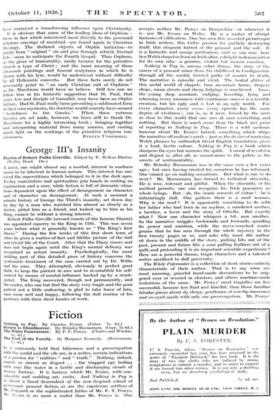George III's Insanity
Diaries of Robert Fulke Greville. Edited by F. McKno Bladon. (13odley Head. 18s.)
A KEEN, one might almost say a morbid, interest in madness seems to be inherent in human nature. This interest has sur- vived the superstitions which belonged to it in the dark ages. To-day materialists and spiritualists join hands- in seeking an explanation and a cure, while fiction is full of dramatic situa- tions dependent upon the effect of derangement on character and of character on derangement. At such a moment a minute history of George the Third's insanity, set down day by day by a man who watched him almost as closely as a doctor, pitied him as a friend, and looked up to him as his King, cannot be without a strong interest.
Robert Fulke Greville (second cousin of the famous Diarist) was appointed equerry to the King in 1781. This was seven years before what is generally known as "The King's first illness." During the few weeks of this first short term of office he gives a matter-of-fact and lifelike picture of the dull and trivial life of the Court. After that the Diary ceases and does not begin again until the King's mental delicacy was recognized as actual insanity. Psychologically, the most striking part of this detailed piece of history concerns the systematic treatment of the case carried out by Dr. Willis and his sons. They attempted, obviously in perfect good faith, to keep the patient in awe and to re-establish his self- control by means of mental influence backed up by a strait- jacket. The King recovered, though not permanently, and the reader, who can but find the story very tragic and the poor patient not a little endearing, is glad to take leave of him, once more well and happy, following the dull routine of his pastimes with their short breaks of work.








































 Previous page
Previous page